Builders' Forum |
|
| ↓ Scroll to Last Comment ↓ | Forum Guidelines | Builders' Forum | |
I am building a Shearwater 16 Hybrid in my garage. I started in June and thought I would be done by now. I just finished stripping the deck so the next step is to fiberglass the underside. I live in Upstate NY and the weather is turning chilly. Any advice on portable heaters? I was looking at a Mr Heater forced air propane heater. Thought someone out there might have some experience heating their workshops.
Check out my progress if you would like.
6 replies:
RE: Portable Heaters
I used a large electric heater to heat my 20 x 8 workshop last winter. I ended up spending close to $700 in one month to keep things warm. And this was in the Seattle area where the temps only get to 28 every once in a while. Lights of any kind will not be enough to keep the entire boat warm for fiberglassing. I tried this before I got my workshop and while I felt marginally less cold, and the epoxy was warm in the bottle, as soon as it hit the cold wood of my boat it became so thick I could almost not use it at all. This was with an ambient temp of about 45.
You need to keep the workshop as close to room temp as you can while doing fiberglass work. It helps to pre-warm the space so the wood isn't cold. While ogata is correct in saying letting the shop cool will help with off-gassing, do not let it cool too much or you will be waiting a long time for the epoxy to cure.
RE: Portable Heaters
I feel your pain-or at least used to. I build in my garage in winter on Long Island. 18' x 20' with huge gaps and drafts. At first I tried a pretty significant elec heater that made a pretty orange glow-Nothing else.
Then went with Reddy-Heater 30000-55000 btu propane. This thing cranks! Put it on low setting and 20 minutes later your in a T-shirt. I was worried about CO poisoning and / or epoxy contamination but it burns very clean and I've got the big see-thru gaps around the double garage door for fresh air. Just get used to working behind a Boeing 737.
Figure on a 20 gal tank every 2 days. You'll end up turning it on and off thru the day as the shop gets too hot! In retrospect I would buy the smaller unit for my shop and save on propane. This one is overkill.
Ed
RE: Portable Heaters
I have sucessfully fiberglassed in an unheated, uninsulated garage in the Pacific Northwest during the winter using the "lightbulb trick." I suspend a 2x4 over the boat (I've got open garage beams so that's easy) and clamp a half dozen portable worklights (incandescent --60 to 75 watt bulbs) to the 2x4, and park another worklight by the epoxy jug, and turn them on, wait a couple hours until it's all warm, and then get started. The key is to warm both the epoxy AND the wood before fiberglassing, so you don't have that warm-epoxy-turning-to-molasses effect once it hits the cold hull. After I'm done, I form a little "greenhouse" using plastic sheeting slung over the whole thing (lights and boat). I've parked a portable thermometer under it -- it's been over 80 degrees in there, even when the ambient temp in the garage is down in the 40's. and, a half dozen lights left on for 24 hours doesn't put a major, major dent in the electric bill. I've had to wear a fleece hat while 'glassing, because while the boat is warm, the rest of the garage is not....but it works.
Julie K
RE: Portable Heaters
I borrowed a propane heater to heat my garage. Early on I tried to light my propane torch to solder and it wouldn't light. Tried a second torch. No light. Gave the heater back. Moved operations to my living room.
Kim
RE: Portable Heaters
We live in mid-Michigan and winters can be...fun. My shop is a converted 20x24 boathouse on the canal. When I fixed it up as a shop, I went to great lengths to insulate it and make it tight. Kim, I know your pain; when it's real cold, propane won't flow. I scrapped my propane heater for a small woodstove that heats the space very well while working out there. I also keep a small electric heater going all the time. It doesn't make it very warm but keeps my cast iron tool surfaces from rusting up. My water based finishes and adheasives are on a high shelf and they never freeze. If i have epoxy curing overnight, i park the electric heater under it and haven't had any trouble. Good luck.





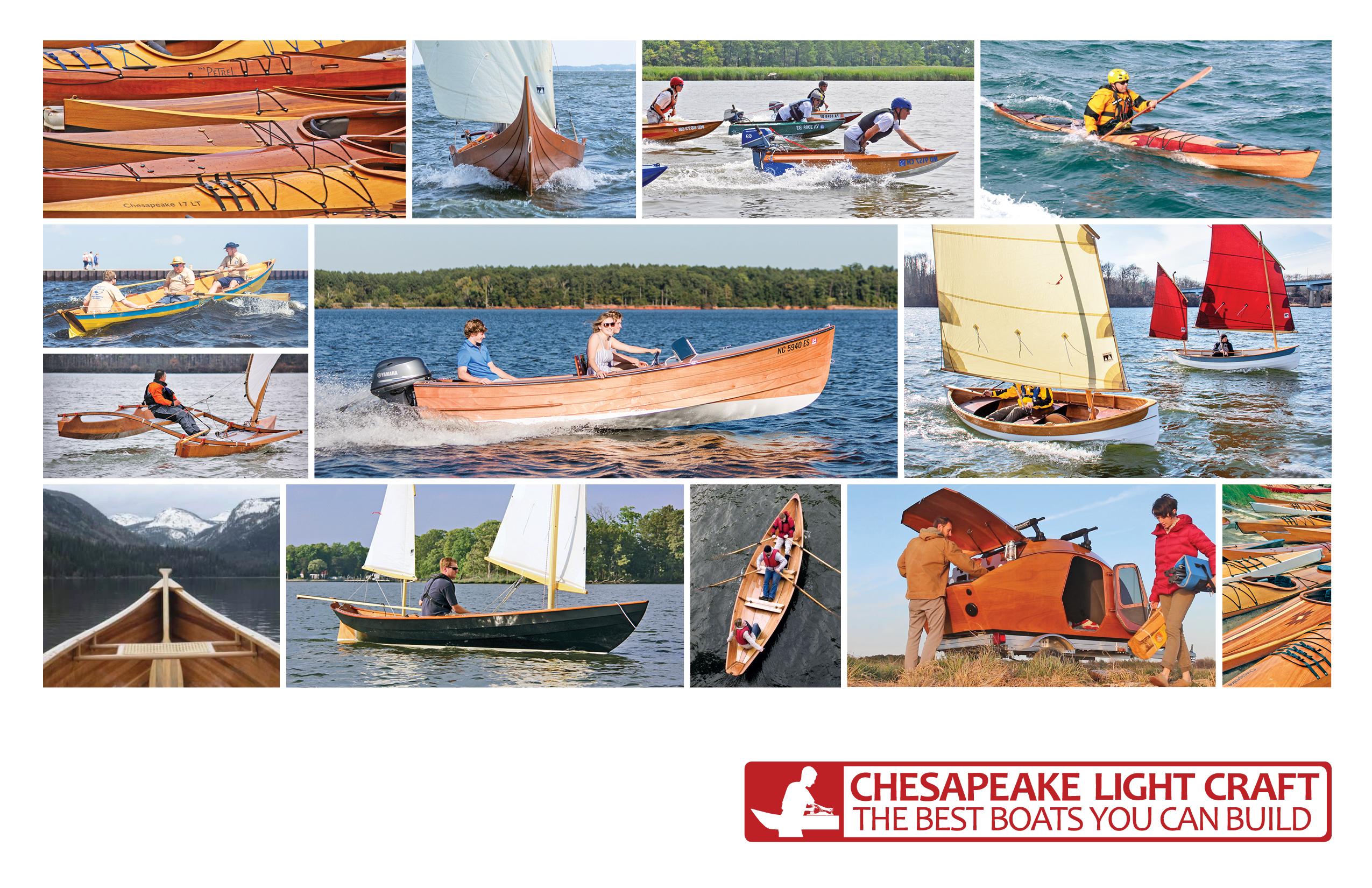
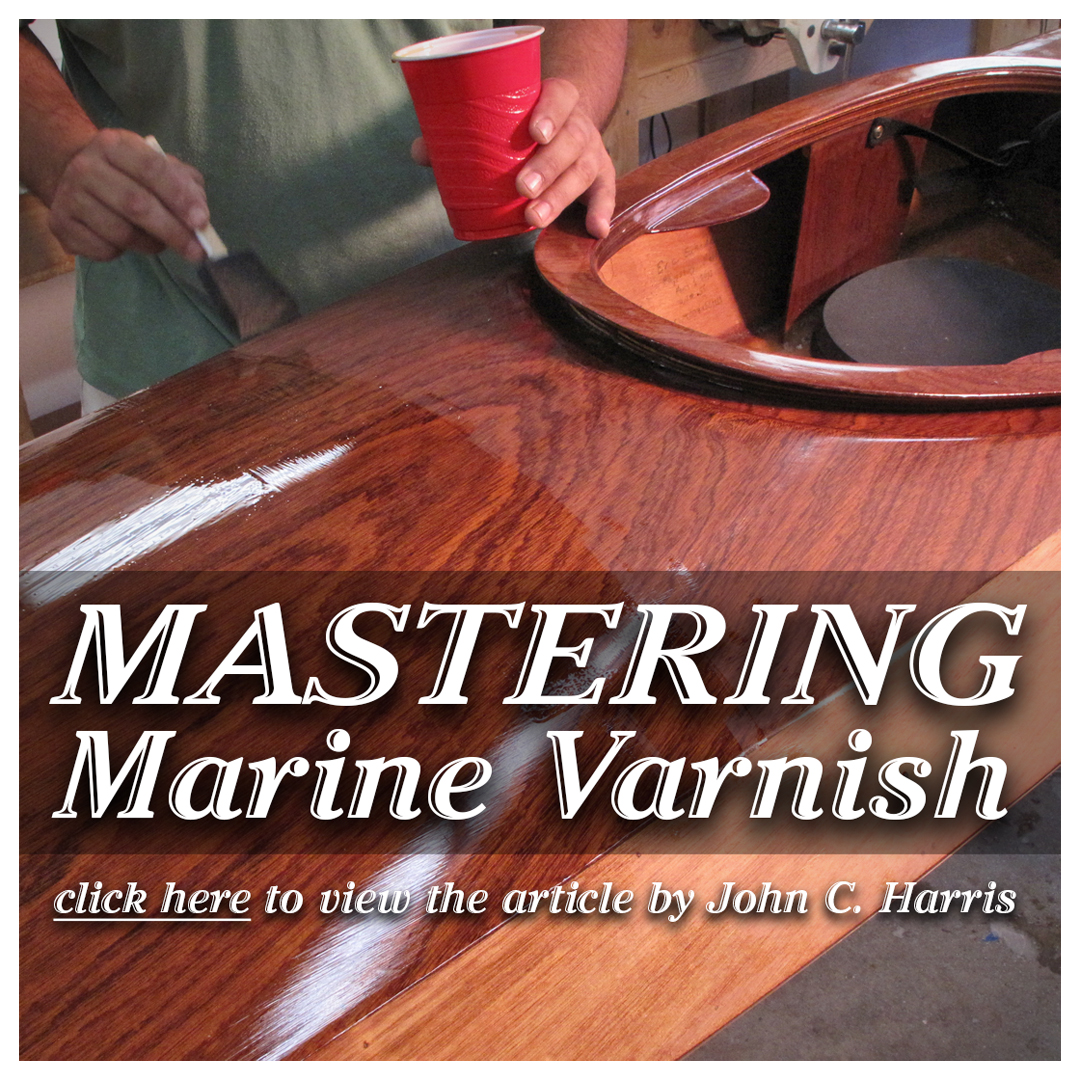
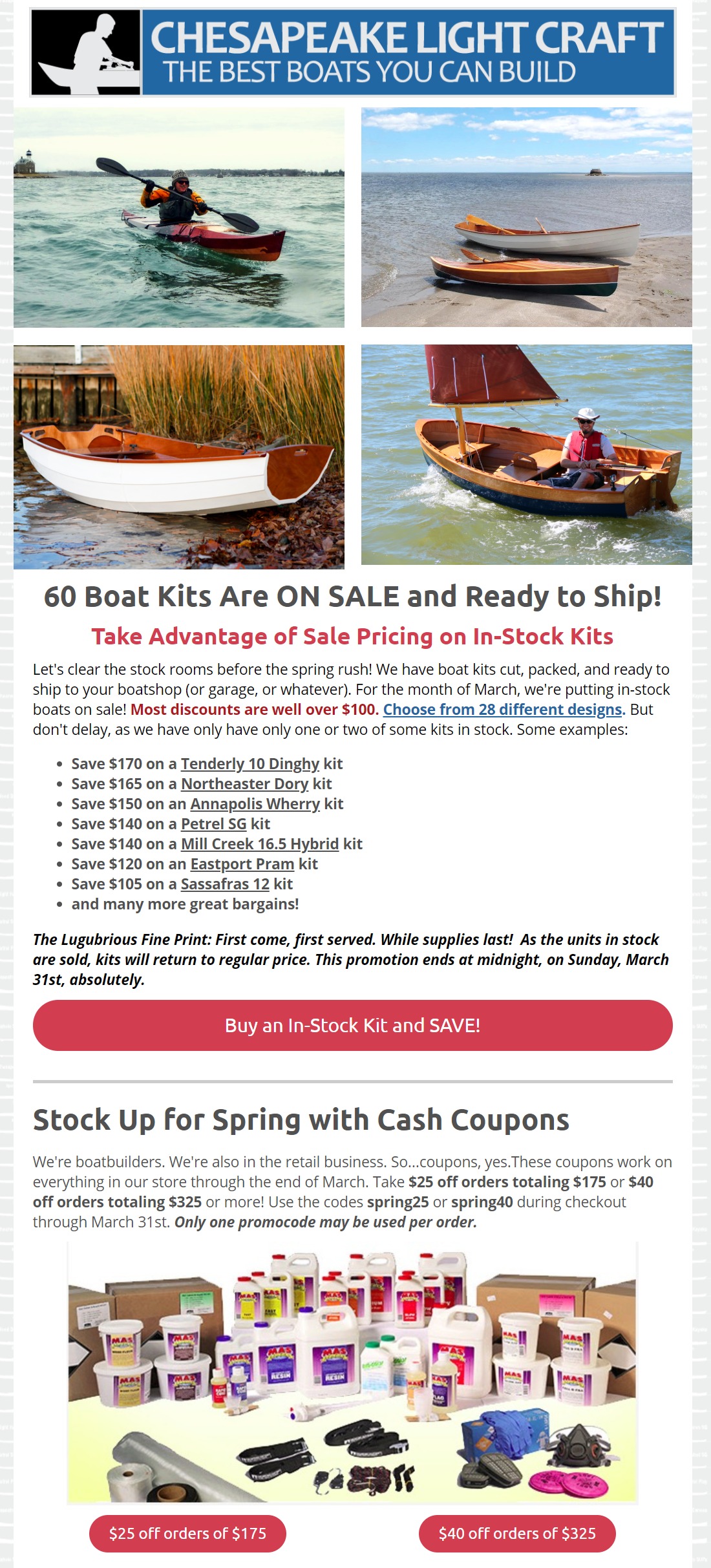
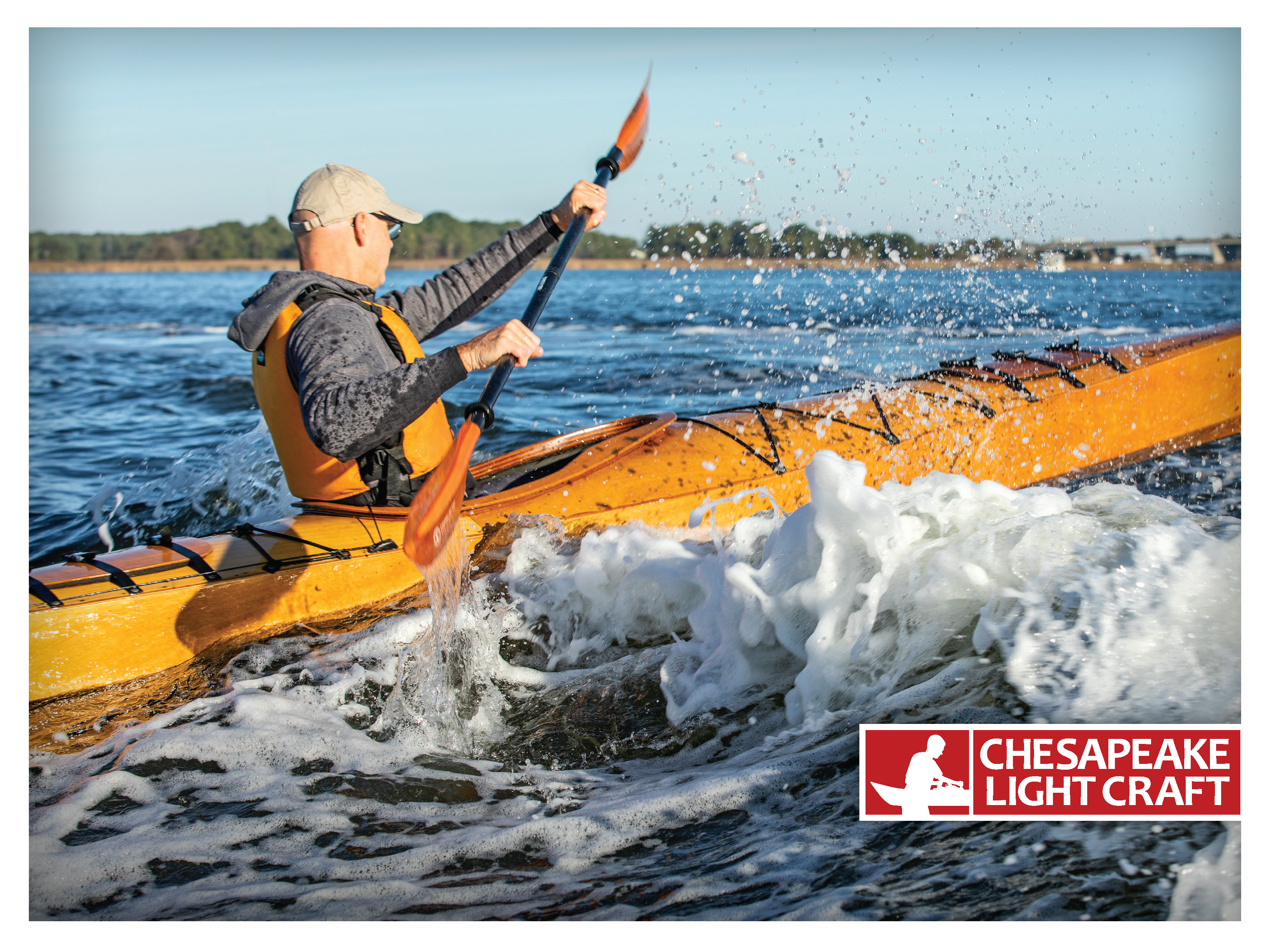

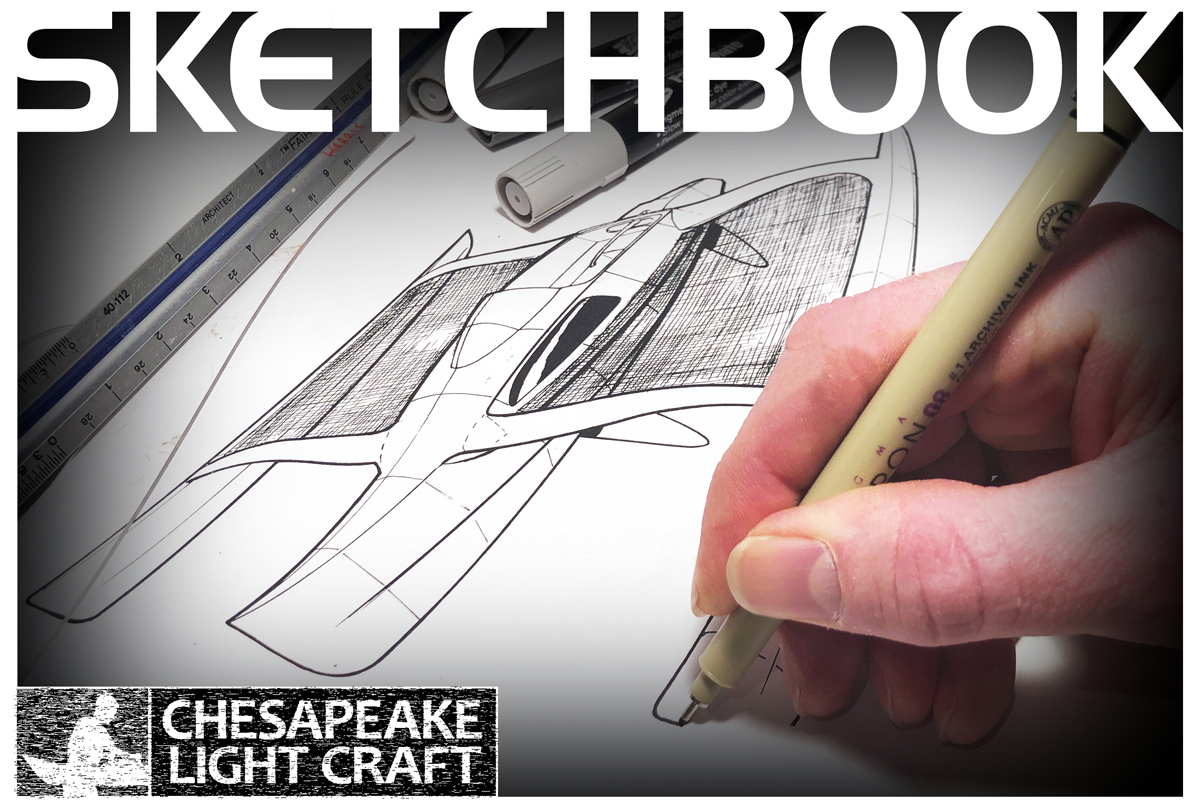


RE: Portable Heaters
» Submitted by ogata - Thu, 10/1/09 » 4:16 PM
My house has hot water heating for the upstairs but no radiators in the basement where I built my Shearwater 16 hybrid last year. Though it is pretty well insulated, it can get chilly down there. I have two 500 watt halogen torches and also used an inexpensive, 1000 watt halogen work light . I needed the light to work anyway, and with that many watts of halogen lamp burning, things could be kept quite toasty. The work lights are adjustable and make good spot heaters in addition to providing light. When working with epoxy, they have the additional advantage that when you have finished working, turn them off and walk away, you have established a nice cooling environment that will minimize bubbles in the epoxy from outgassing.
Whatever solution you use, be careful. All those nice dry cedar strips would make for a very fast-starting, intense fire. And the little shavings that are created when fitting strips make perfect kindling!
Your boat looks beautiful! I've really enjoyed paddling mine this last season. She is scraped and scratched all over but as structurally sound as ever. Maybe I'll bring her inside and clean her up a little this winter.
--
Ogata, eric